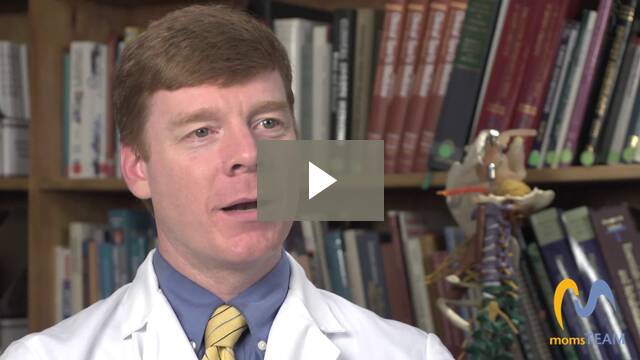 The subject of sports concussions has been a hot topic in the news for about a decade, but, even after years of coverage, the important role parents play after their kids suffer concussions is often overlooked.
The subject of sports concussions has been a hot topic in the news for about a decade, but, even after years of coverage, the important role parents play after their kids suffer concussions is often overlooked.
The fact is that an athlete's parents, along with teachers, coaches, school nurses, psychologists, and athletic trainers play a crucial role in a child's treatment and recovery from a suspected concussion, especially the all-important decisions about when to return to school ("return to learn")[11] and everyday social and home activity, and, in most cases, to sports. [1,14]
Parent involvement in their child's recovery from a concussive event is, of course, not surprising, considering that:
- Active involvement of the parent is standard practice in pediatrics (especially, of course, for younger children);
- The student-athlete's everyday environments at home and at school are important places to observe post-concussion symptoms;[14] and
- Parents and teachers possess a wealth of information about the child's behavior and ability to function in these settings that is directly relevant to an assessment of their post-concussion symptoms ( and when it is safe for them to return to the classroom (often with accommodations) [11] and sports.
Parent concussion checklist
But what, exactly, is the parent's role? Here's a 10-point checklist.
1. Regularly and closely monitor athlete for first 24 to 48 hours. [2,7,10,14]
- While all concussions should be taken seriously, the potential always exists for a life-threatening head injury, such as an epidural hematoma (bleeding between the skull and the brain), subdural hematoma, subarachnoid hematoma, or from second-impact syndrome (a rare, but often fatal brain injury suffered before the brain has fully healed from previous brain trauma).
- Because delayed onset of symptoms during the first 24 to 48 hours is possible (and more likely in children), parents - or another responsible adult - should closely and periodically monitor the athlete during this time. Ideally, parents should be provided with information in written form to take home on what to watch for, as is set forth in the SCAT3 [2] and Child-SCAT3.[7]
- Even if an athlete has been removed from a game or practice because of a suspected concussion (as is required by law required by law in nearly every state), he or she should not be left unattended [14] or sent to the locker room alone, and should never be allowed to drive home.
- It is a good safety strategy to sequester an essential piece of playing equipment to avoid an 'inadvertent' return to the game.[10]
- The traditional rule has been to wake up a concussed athlete every 3 to 4 hours during the night to evaluate changes in symptoms and rule out the possibility of an intracranial bleed, such as a subdural hematoma. The new thinking [3,10,14] is that there may be more benefit from uninterrupted sleep than frequent wakening, which may make symptoms worse. As a result, waking up your child during the night to check for signs of deteriorating mental status (see #2) is no longer recommended. Indeed, if level of consciousness is a concern, says concussion expert Dr. Bill Meehan (see video below), the athlete should undergo a CT scan or MRI. and observed in a hospital setting. Otherwise, sleep is restorative and your child should be allowed to sleep. [10,14]
2. Immediate hospitalization if condition deteriorates. [2,7] If your child experiences any of the following signs of deteriorating mental status, take her to the hospital immediately:
- Has a headache that gets worse
- Is very drowsy or can't be awakened (woken up)
- Can't recognize people or places
- Is vomiting repeatedly
- Behaves unusually, seems confused or very irritable
- Experiences seizures (arms and legs jerk uncontrollably)
- Has weak or numb arms or legs
- Is unsteady on his feet or has slurred speech.
3. Use acetaminophen (e.g. Tylenol®) or codeine for headache. Do not give aspirin or non-steroidal anti-inflammatory medicine(NSAIDs)(e.g. Ibuprofen/Advil®). [2,7,10,14] An ice pack on the head and neck is okay as needed for comfort. [10] A 2010 clinical report from the American Academy of Pediatrics' Council on Sports Medicine and Fitness [3] notes that, because no studies have actually documented any harm from use of aspirin or non-steroidal anti-inflammatories (NSAIDS) after a sport-related concussion, the common recommendation against their use is based more on a theoretical risk. The new 2013 position statement from the American Medical Socety for Sports Medicine [10] takes the same stance. A dim, quiet environment may help with headache, as well as symptoms of sensitivity to light and sound often experienced by student-athletes with concussion. Headaches that continue as part of a post-concussion syndrome (symptoms lasting longer than 4-6 weeks) often require a multi-disciplinary approach. [10]
4. No drugs, alcohol, or sleeping pills: Warn your child about the dangers of drinking alcohol,[14] engaging in recreational drug use, or using any other substance that could interfere with cognitive function and neurologic recovery. While disturbed sleep is a common and important symptom experienced throughout the course of a concussion, and immediately after a concussion, your child may experience either difficulty falling or staying asleep, or sleep longer, in either case, sleep issues should be addressed without medications, and with particular attention to good sleep hygiene. If sleep difficulties persist (e.g. your child is diagnosed with post-concussion syndrome), then medical and cognitive therapies may be considered.
5. No driving until symptoms have cleared. [2] While an athlete is experiencing concussion symptoms - such as sensitivity to noise or light or dizziness, inability to detect quick movements of the head, sleep problems, problems with memory or concentration, or anxiety, even a narrowing of their field of vision - he should not be driving. If symptoms persist, it may even be advisable for the athlete to be undertake a more formal evaluation to determine whether it is safe for him to resume driving a car.
6. Normal diet: Limited information is available regarding the recommended diet for the management of concussion. A normal well-balanced diet that is nutritious in both quality and quantity should be maintained to provide the needed nutrients to aid in the recovery process.[14] Avoid spicy foods.









